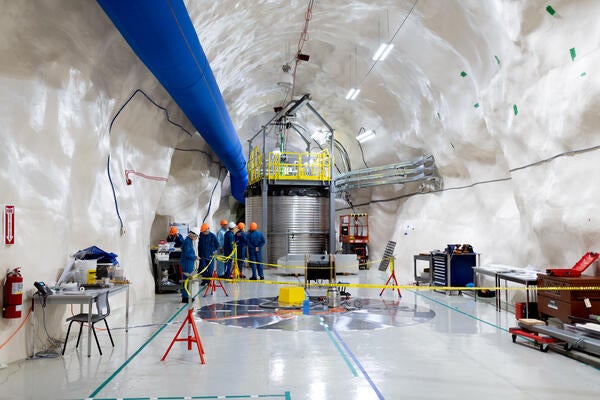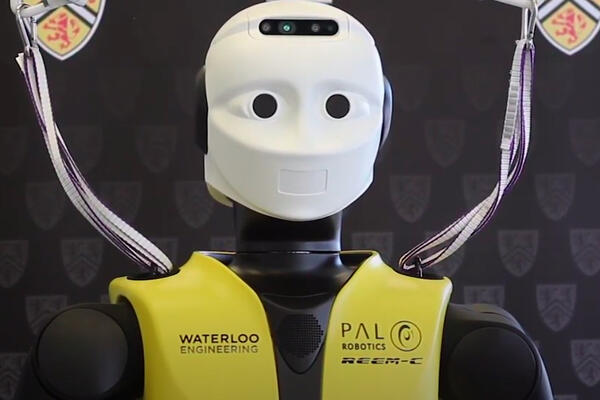The University of Waterloo, in collaboration with Mike and Ophelia Lazaridis, has launched a new $8-million research chair to further solidify Waterloo’s leadership in quantum information research.
Raymond Laflamme becomes the Mike and Ophelia Lazaridis “John von Neumann” Chair in Quantum Information at the University of Waterloo.
An $8 million investment from the University of Waterloo and Mike and Ophelia Lazaridis will support Laflamme’s research on error correction in quantum systems that is critical to the development of the quantum computer and other robust new quantum technologies. Harnessing the power of technologies at the atomic scale requires mechanisms to control these fragile, yet powerful behaviours.
“This pioneering research in quantum technologies at Waterloo’s Institute for Quantum Computing (IQC) will help further establish our impact as a global leader in quantum research,” said Feridun Hamdullahpur, president and vice chancellor at Waterloo. “The combination of Raymond Laflamme’s expertise and the Lazaridis family’s generosity ensures that the world can continue to look to Waterloo for the latest advancements in quantum knowledge and technology.”
During his keynote address at the Waterloo Innovation Summit, Mike Lazaridis praised Laflamme’s continued commitment to quantum research and his extensive achievements in positioning Canada as a quantum research powerhouse.
“Raymond Laflamme is broadly recognized as a globally leading researcher in quantum error correction,” Mike Lazaridis said. “His research contributions have led the development of quantum control, which is a building block to realizing quantum computing. His leadership and his many contributions to the University of Waterloo as the founding director have helped establish IQC as one of a handful of centres in the world for top researchers in quantum information science. Over the past 15 years, he and his colleagues at IQC have established Waterloo—and Canada—as a global leader in the second quantum revolution. I am thrilled that Raymond has chosen to continue to demonstrate leadership in the context of this new and critically important Chair. Ophelia and I are very pleased to have played a role with the University of Waterloo to make this happen.”
Laflamme joined the University of Waterloo in 2001 as a professor in the Department of Physics and Astronomy. He was the founding director of the IQC until his term ended earlier this year. Under Laflamme’s leadership, IQC has grown from a concept to more than 200 researchers, and is widely recognized as one of the world’s largest centres for quantum information research.
Prior to joining Waterloo, Laflamme was an Oppenheimer Fellow at Los Alamos National Laboratory. He earned his undergraduate degree in physics at Université Laval. He then moved to Cambridge University, where he earned his PhD in the Department of Applied Mathematics and Theoretical Physics (DAMTP) under the direction of Stephen Hawking. Laflamme and Don Page are responsible for having changed Hawking's mind on the direction of time in a contracting Universe (as described in Hawking’s best-seller A Brief History of Time). After his PhD, Laflamme became a Killam postdoctoral fellow at the University of British Columbia.
“Thanks to the visionary support of Mike and Ophelia Lazaridis and the University of Waterloo’s commitment to research excellence, Canada is now among the top countries in the world for quantum research,” said Laflamme. “Having a front-row seat on this journey has been remarkable. I look forward to continuing to contribute through my research and my students.”
Laflamme holds a Canada Research Chair in Quantum Information and was awarded the CAP-CRM Prize in Theoretical and Mathematical Physics earlier this year. He received the Queen Elizabeth II Jubilee Medal in 2013, and an honorary degree from the Université de Sherbrooke in 2012. He is a fellow of the American Association for the Advancement of Science, the American Physical Society, and the Royal Society of Canada, and is a founding faculty member at the Perimeter Institute for Theoretical Physics.








